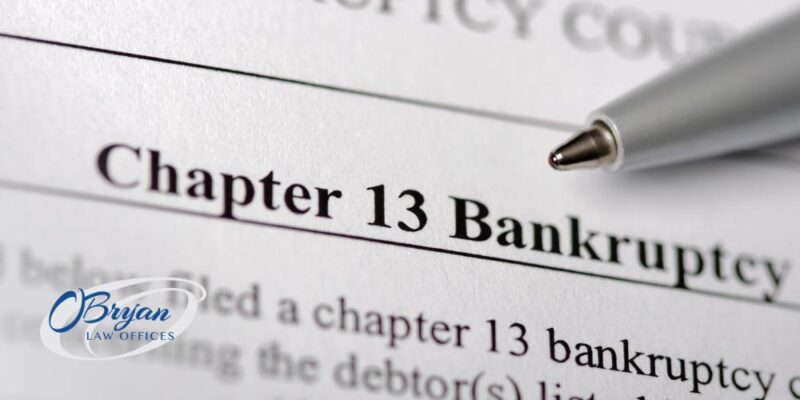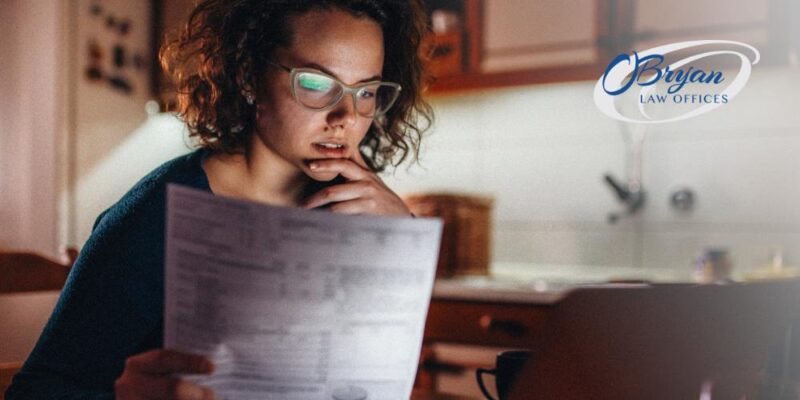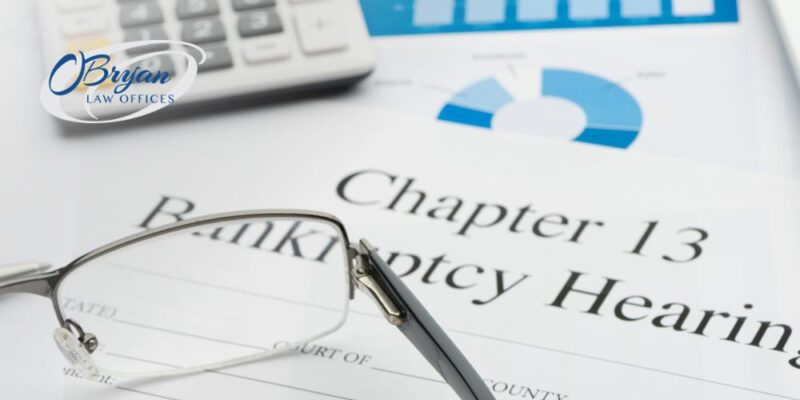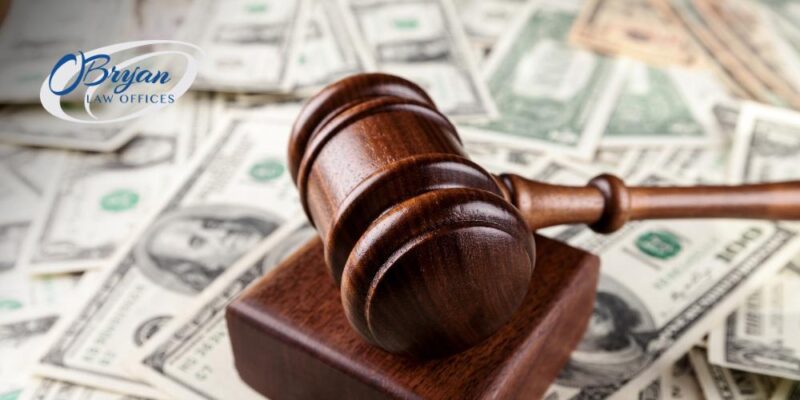Chapter 13 Bankruptcy Discharge

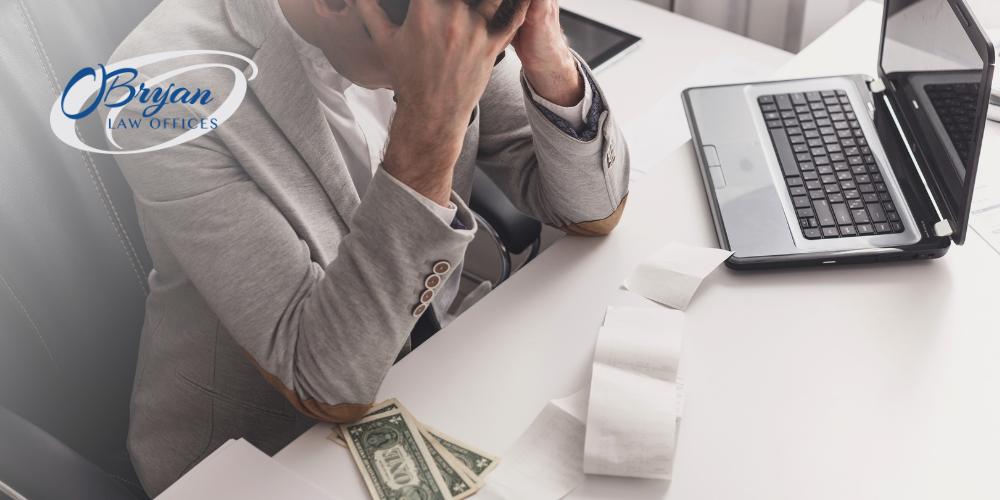
Chapter 13 bankruptcy is a powerful tool that allows individuals and businesses to erase their debts by repaying them through a court-approved repayment plan. A Chapter 13 bankruptcy lasts about 3-5 years, and after it’s complete, the person who filed for bankruptcy will no longer have a responsibility to pay their discharged debts. A bankruptcy filing also protects the debtor from any legal action from their creditors, as well as foreclosure, repossession, or wage garnishment during those 3-5 years.
If you want to file for Chapter 13 bankruptcy, the Louisville bankruptcy attorneys at O’Bryan Law Offices are here to help you receive your bankruptcy discharge. We can help you file your petition for bankruptcy and can help ensure you complete the necessary steps to have your debts discharged. Call us at 502-339-0222 to schedule a free consultation.
What Is a Chapter 13 Discharge?
A discharge is the final part of a Chapter 13 bankruptcy, and it releases, or discharges, a debtor from their debts. Most people will receive their discharge order 3-5 years from the date they filed for bankruptcy. Once they receive their discharge order, the person who filed for bankruptcy will no longer have an obligation to pay their dischargeable debts.
Dischargeable debts can be repaid and wiped clean through a Chapter 13 bankruptcy. Some dischargeable debts include consumer debts like credit card debt and personal loan debt. However, certain debts will stick around after a person files for bankruptcy. This means that those debts still have to be paid in full, even after a bankruptcy discharge.
Debtors will pay a set amount on their dischargeable debts over 3-5 years and, in exchange, they will be protected from any legal action or seizure of their property for the duration of the bankruptcy. After all payments on the repayment plan have been made, the person filing for bankruptcy can receive their discharge paperwork. Discharge may be delayed or denied in some cases, but a bankruptcy lawyer can help debtors ensure all necessary actions are complete.
Curious about how much you would have to pay under a Chapter 13 repayment plan? Calculate your minimum monthly payment for your bankruptcy filing with our Chapter 13 payment calculator.
Chapter 13 vs Chapter 7 Discharge
There are two main types of bankruptcy people tend to file under: Chapter 7 and Chapter 13. A Chapter 7 bankruptcy is often called a “liquidation bankruptcy,” which means the filer’s assets are liquified, or sold, to pay their debts. Those filing under Chapter 7 of the bankruptcy code will usually receive their bankruptcy charge within 3-6 months of filing their initial bankruptcy petition.
In a Chapter 13 bankruptcy, debtors are given a chance to repay their debts through a multi-year repayment plan, which means they will not have to liquidate their assets to pay their debts. While this may seem like the better option–and it is for some–there are plenty of downsides to a Chapter 13 bankruptcy case. In fact, most of the people who file for Chapter 13 bankruptcy only do so because they do not qualify to file their bankruptcy case under Chapter 7.
Chapter 13 of the bankruptcy code allows those with a certain yearly income to plan payments and repay debts without the risk of legal action. The thought is that if someone has disposable income, they should be able to repay their debts. They just may not be able to keep up with their current monthly payments.
After all payments have been made, the remaining balances on any unsecured debt will be erased with a discharge order. Both a Chapter 7 and a Chapter 13 discharge allow a person to erase their unsecured debt and have a fresh start. Additionally, after any bankruptcy discharge, unsecured creditors must cease all collection activities. Any FDCPA violations of the discharge order could result in penalties from the issuing bankruptcy court.
Bankruptcy lawyers like those at O’Bryan Law Offices can help you decide which chapter of bankruptcy is right for you. Learn more by calling us at 502-339-0222 and scheduling an appointment with us.
What Is a Hardship Discharge in Chapter 13?
A hardship discharge is an additional request for debt relief. Emergencies happen, and they can cause someone extreme financial hardship, even if they have a slightly above-average income. A hardship discharge allows someone who has filed for Chapter 13 bankruptcy to receive an earlier discharge if they meet certain criteria.
Someone can qualify for a hardship discharge if they are unable to make payments as a result of a situation that is out of their control. A person can have their disposable income decreased by divorce proceedings, unexpected health emergencies, or a sudden loss of income. Additionally, someone can receive a hardship discharge if their unsecured creditors have already received enough money equal to what they would have received in a Chapter 7 bankruptcy.
Filing for a hardship discharge can be difficult, and proving to a court that payments can no longer be made on schedule can be even harder. Bankruptcy attorneys can help those struggling financially receive an early discharge from their Chapter 13 case.
What Debts Qualify for a Chapter 13 Discharge?
Only certain debts qualify to be discharged in a Chapter 13 filing. Dischargeable debts often include:
- Credit card debt
- Debt from unpaid medical bills
- Personal loan debt
- Income tax debt
- Debt from certain property settlements
- repossession and foreclosure deficiencies
- Debt from unpaid utility bills
Even after receiving their discharge, the person filing for bankruptcy may have to continue to make payments on any secured debts, like their car loan or mortgage, if they want to keep their property and avoid repossession or foreclosure.
Some debts are non-dischargeable, meaning they will not be erased in a Chapter 13 case. These usually include debts with a higher priority than others, like child support payments or mortgage payments. Additionally, any criminal fine arising from willful or malicious actions like drunk driving will be considered non-dischargeable, and will have to be paid to the state regardless of bankruptcy status. Debts incurred after the Chapter 13 filing are also non-dischargeable.
If you are interested in learning more about what debts are dischargeable in a Chapter 13 bankruptcy, call O’Bryan Law Offices or contact us online so we can contact you and answer any questions you may have regarding bankruptcy.
Does Chapter 13 Discharge Tax Debt?
Yes, certain taxes are dischargeable under Chapter 13, namely older tax obligations on income. A Chapter 13 bankruptcy filing will discharge income taxes if you file for bankruptcy at least three years after the taxes were due. After filing your bankruptcy, you may still have to pay nondischargeable tax obligations, like property tax, to avoid getting in trouble with the IRS.
Can Chapter 13 Discharge Student Loans?
Under certain circumstances, a Chapter 13 bankruptcy can discharge debts arising from guaranteed educational loans. For example, if the person filing for bankruptcy can prove that their student loans are causing them undue hardship, they may have their educational loans discharged.
Discharging student loans can be a complicated process. If you have student loans you want to have discharged in your Chapter 13 bankruptcy, call O’Bryan Law Offices at 502-339-0222 and set up a meeting with one of our Kentucky bankruptcy attorneys.
Can Chapter 13 Discharge Child Support?
No, your Chapter 13 bankruptcy will not discharge your child support obligations.
In a bankruptcy, dischargeable debts are often unsecured debts and non-priority debts. A priority debt is a debt deemed to be more important than other debts. Domestic support obligations are more important than medical bills, so while things like medical debt, credit card debts, and debts arising from personal loans are all dischargeable, debts arising from child support are not.
Can Chapter 13 Dissolve Divorce Settlements?
It depends. Certain divorce-related debts like child support and alimony are not dischargeable in a Chapter 13 case, but certain unsecured debts related to the separation proceedings can be dissolved. These qualifying debts often include credit card debts, personal loan debts, and debts on property obtained together.
What Other Debts are Nondischargeable?
Certain other debts are also non-dischargeable, including any debt from a previous criminal fine. If the person filing for bankruptcy has caused willful and malicious injury to another person, the debtor will have to pay any fines the court sentenced them to. However, other court fines from non-criminal action may be dischargeable, unless a creditor timely files to have that debt declared non-dischargeable.
Penalties incurred from fraud or embezzlement are also non-dischargeable. Additionally, other long-term obligations like mortgages or car payments may also remain after the bankruptcy discharge is issued.
Any debts declared nondischargeable must be paid in full. A bankruptcy attorney can help you better understand what can and cannot be discharged in a Chapter 13 bankruptcy, so call the bankruptcy professionals at O’Bryan Law Offices today at 502-339-0222 for more information.
Is Discharged Debt in Chapter 13 Taxable?
No, under both Chapter 7 and Chapter 13, most discharged debts are not subject to income taxes. For example, if you have $5,000 in credit card debt, which was reduced to $3,000 after filing for bankruptcy, the remaining $2,000 will not be taxed.
How Long Does It Take to Get a Chapter 13 Discharge?
In a Chapter 13 case, it normally takes about 3-5 years before the person filing for bankruptcy is finally discharged of their debts. After 3-5 years, if the debtor has managed to repay their debts, is up to date on their domestic support obligations, and has taken an approved course on financial management, they will most likely receive their bankruptcy discharge. The bankruptcy court for the debtor’s district will ensure the debtor has completed all necessary requirements, and issue the discharge. The bankruptcy administrator will then send it to the debtor and their creditors, notifying everyone that the debtor has been released from their discharged debts.
The sooner you file for bankruptcy, the sooner you’ll receive your discharge order, so get started as soon as possible. The lawyers at O’Bryan Law Offices provide competent legal counsel to those looking to file for bankruptcy. Call us at 502-339-0222 so we can help you through the process and make the most of your bankruptcy filing.
What to Do If You Got a 1099 from a Creditor After Getting a Discharge
Under bankruptcy law, a discharge order protects a debtor from future collection efforts on their discharged debts. If a creditor tries to collect debts from the debtor after the discharge order has been issued, the debtor should contact their bankruptcy administrator to ensure that the creditor is aware of the bankruptcy discharge order. If the creditor does not stop all collection efforts, the debtor should contact the bankruptcy judge and pursue legal or other action against the creditor.
Does a Chapter 13 Discharge Remove Negative Items From Your Credit Report?
Yes, a Chapter 13 discharge can remove negative items from your credit report. After receiving a bankruptcy discharge in a Chapter 13 case, all debts dischargeable under Chapter 13 will be removed from the filer’s credit report. This means that missed payments leading to foreclosure or repossession can be removed from your credit report, allowing your score to improve shortly after filing for bankruptcy.
Unfortunately, not all negative items will automatically be removed from your credit report after filing for bankruptcy. Bankruptcy can also negatively impact your credit score and can remain on your credit report for up to 7 years. Bankruptcy is not designed to ruin your credit, but since it can negatively affect your credit for a while, you may want to attend credit counseling courses after filing for bankruptcy.
Will a Discharge Remove a Foreclosure From My Credit Report?
No, a discharge will not remove a foreclosure from your credit report. It will, however, remove any previously missed payments that led to the foreclosure of your home. Additionally, bankruptcy can prevent foreclosure before it happens. The debtor’s homestead exemption is designed to help those filing for bankruptcy retain their home in a Chapter 7 bankruptcy, but it can also help decrease the amount owed to a home loan creditor in a Chapter 13 bankruptcy.
Will a Discharge Remove a Repossession From My Credit Report?
No, a Chapter 13 discharge will not remove repossession from your credit report. However, like foreclosures, bankruptcy can remove any missed payments that caused you to default on your car loan. Having these debts discharged can help improve your credit score after repossession. A Chapter 13 bankruptcy can also prevent repossession in the first place. If you are in danger of losing your car, filing for bankruptcy may be beneficial.
Will a Discharge Remove a Judgment From My Credit Report?
No, if you have had a prior case filed against you, your bankruptcy discharge will most likely not remove the judgment from your credit report. Bankruptcy can, however, stop a pending proceeding from continuing. For example, if you are sued by a creditor on a defaulted loan, filing for bankruptcy will immediately pause that civil case for the duration of your bankruptcy.
Can a Chapter 13 Bankruptcy Discharge Be Denied?
Yes, while it’s rare, a Chapter 13 bankruptcy discharge can be denied under certain circumstances. To receive a bankruptcy discharge, the person filing must attend a court-approved financial management course, must have paid all domestic support obligations, like child support, and must have fulfilled all requirements of the repayment process. If they have not paid off their debts through the agreed-upon repayment plan, or have not paid alimony or child support, the bankruptcy judge may not issue a discharge order.
Contact a Chapter 13 Lawyer at O’Bryan Law Offices Today
A bankruptcy discharge is the end goal for any Chapter 13 bankruptcy case. It releases a debtor from their debts and allows them to start fresh. A lot of things have to happen first, though. Luckily, a skilled bankruptcy attorney can help someone file their petition for bankruptcy and walk them through the steps they need to take to receive their discharge paperwork.
If you are in overwhelming debt and want to avoid foreclosure, repossession, and wage garnishment, call the bankruptcy lawyers at O’Bryan Law Offices. We will help you file a petition for Chapter 13 bankruptcy, as well as help you through the bankruptcy process. We can even defend your interests in bankruptcy court or help you file a petition for a Chapter 13 hardship discharge. Call our law firm today at 502-339-0222 to receive a free consultation regarding your bankruptcy case.

